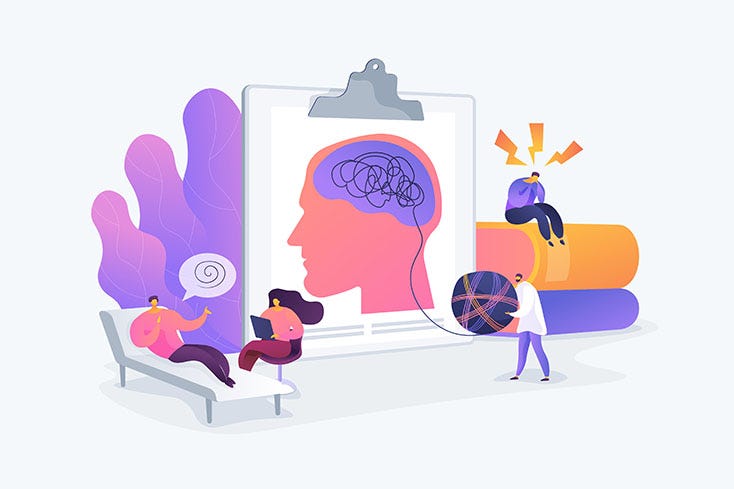It's 2010, and Dr. Jonathan Rottenberg and I are buzzing with an idea. We're convinced that psychological flexibility is the unsung hero of psychotherapy, the secret sauce that makes it work. When working with a therapist to break free from dysfunctional patterns, gain insight into your values, and embrace new behaviors, you move from rigidity to flexibility.1 We were so fired up about this concept that we cranked out a scientific article in just two weeks! Lo and behold, it’s the most widely read article written by either of us - cited over 3,300 times.
We define psychological flexibility by how a person:
adapts to fluctuating situational demands such as moving from self to other-focused after noticing a lost kid in a mall
reconfigures mental resources such as coasting after a major splurge of energy on a goal
shifts perspective such as persuading three senior members of your university to shut up in meetings and give introspective, newer members a chance to speak
balances competing desires, needs, and life domains
Fast forward 14 years and 10 additional articles published together, and we're still at it - joined by the early career brilliance of Dr. Fallon Goodman. Together, we're shining a light on another overlooked phenomenon: 'Well-Being After Psychopathology.'
Transforming After Suffering
Picture this: You've just been diagnosed with a mental health disorder. The future looks uncertain, even bleak. Conditions like obsessive-compulsive disorder, attention-deficit hyperactivity disorder, post-traumatic stress disorder, and depression are often seen as life sentences, casting long shadows over your ability to be fully human. The goal? Manage and minimize oppressive symptoms. But what if a full life—with purpose, autonomy, and healthy relationships—is possible after treatment?
The field of psychopathology often paints a grim picture, even though many leading researchers have journeyed from severe disorder to healthy, productive living. Kay Redfield Jamison, a top researcher on bipolar disorder who penned her own experiences in 'An Unquiet Mind.' Or Elyn Saks, a mental health law expert who documented her self-harm and auditory hallucinations in 'The Center Cannot Hold.' Marsha Linehan, a researcher on borderline-personality disorder who spent two years in a hospital battling the disorder.
Yet, these stories of triumph over psychopathology rarely make the news. Sure, public figures like Lady Gaga, Prince Harry, Fiona Apple, and Dwayne “The Rock” Johnson have shared their mental health journeys. But more often, we hear about those who lost their battles, like Virginia Woolf, Ernest Hemingway, Anthony Bourdain, and Robin Williams.
This grim perspective isn't baseless. Depression, for instance, is one of the leading causes of disability, with poor long-term outcomes, low remission rates, and high relapse and recurrence.
But what if there's another type of depression? One that doesn't chronically recur and resist treatment?
If you are a free subscriber, upgrade for the full experience. Including first access to new science from my Well-Being Laboratory.
Who are these people who, despite a history of depression/anxiety/eating issues/suicidality (click here for my last crucible), not only bounce back but function better than the supposedly “psychologically healthy and normal”?
Let me show you. Get ready to ditch antiquated, conventional views on mental health…




